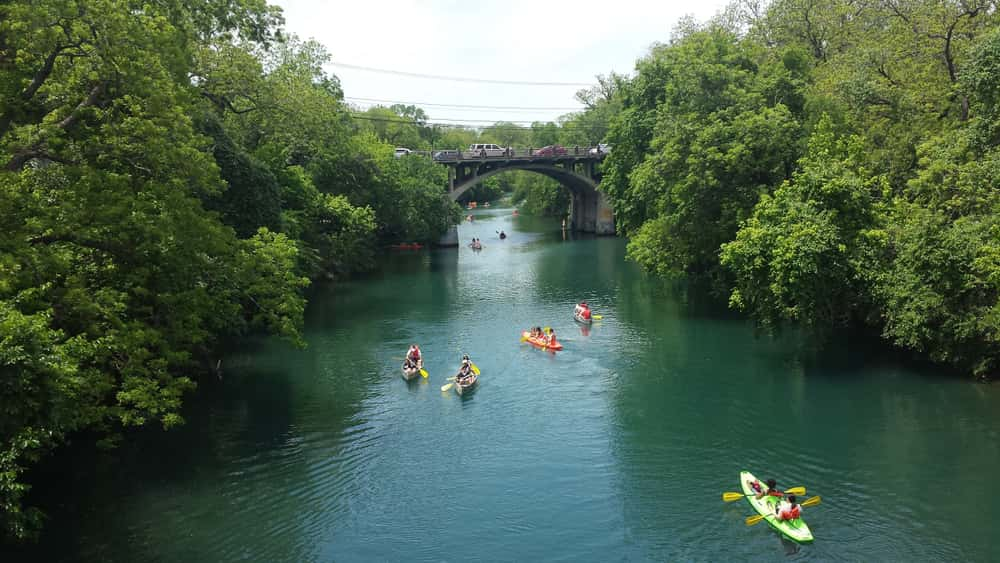Nearly two weeks ago, the City of Austin sent off samples of algae for testing that were found in Lady Bird Lake. The results are in, and they do confirm the presence of dihydroanatoxin, which is produced by the algae and can quickly be fatal to dogs. At least five dogs died last year shortly after swimming. The city recommends you keep your dog out of the lake.
Official release:
The Watershed Protection Department has received the test results from algae that was sampled on July 14, 2020. University of Texas researchers have confirmed the presence of dihydroanatoxin within the algae samples from Festival Beach and Red Bud Isle. Additional signage is being placed along Lady Bird Lake to help alert the public to the presence of toxins. We recommend that dog owners not allow their pets to swim in or drink from Lady Bird Lake. People should avoid handling the algae.
Dihydroanatoxin is one of several possible toxins that cyanobacteria, also called blue green algae, can produce. It is the same toxin that was produced last year.
The toxin is contained within the algae and has not been released into the water. This is important because it means that currently exposure to the toxin would occur through touching or ingesting the algae, not through contact with the water.
We will continue weekly monitoring of algae at four locations on Lady Bird Lake, including Red Bud Isle, the mouth of Barton Creek, Vic Mathias Shores and Festival Beach. Information about
Dogs were particularly vulnerable to the harmful algae bloom that occurred last year. At least five dogs died after swimming in Lady Bird Lake during the summer of 2019. Dog owners should take their pets to a veterinarian immediately if their dogs become sick after swimming in Lady Bird Lake. Please also report the illness to 3-1-1. Symptoms of exposure may include:
- Excessive drooling, vomiting and diarrhea
- Foaming at the mouth
- Jaundice and hepatomegaly
- Blood in urine or dark urine
- Stumbling
- Loss of appetite
- Photosensitization in recovering animals
- Abdominal tenderness
- Progression of muscle twitches
- Respiratory paralysis
At this time, the risk to people appears low and people may continue to boat and fish, following COVID-19 restrictions in the “STAY HOME, MASK AND OTHERWISE BE SAFE” order. People should avoid handling the algae and rinse off if they fall into the water. Swimming has been banned in Lady Bird Lake since 1964.





